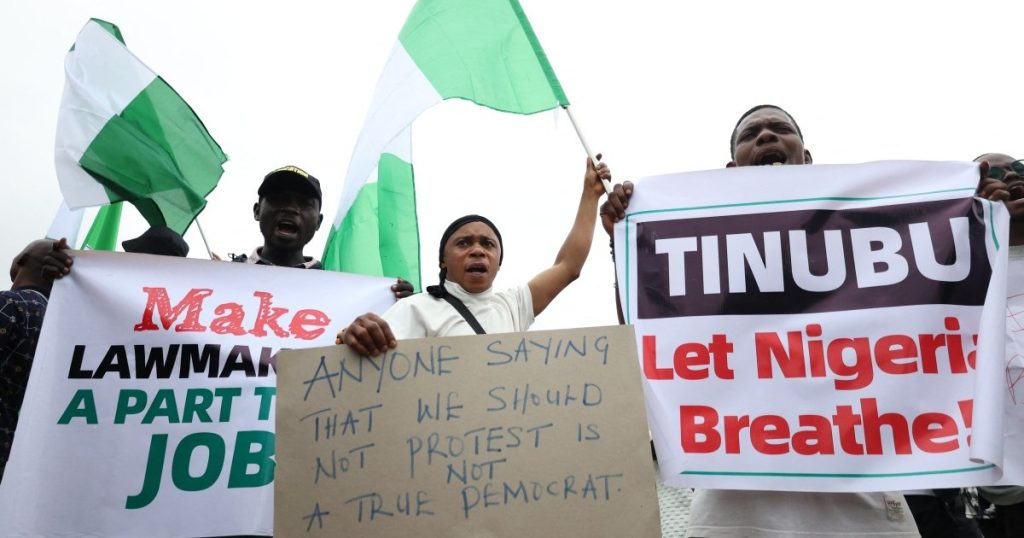Protests have erupted in Nigeria over the government reforms that have led to high inflation and devalued currency. The demonstrations, tagged #EndbadGovernanceinNigeria, have gained online support from Nigerians facing food inflation at 40 percent and tripled fuel prices since the reforms were introduced by President Bola Ahmed Tinubu. Security forces have tightened measures in Lagos and Abuja to prevent violence during the protests, with tear gas being used to disperse demonstrators in Abuja and Kano. Roads leading to demonstration sites have been blocked, and police and soldiers have been stationed at strategic points.
In response to the economic crisis, the government announced measures including delivering grain to states and aid to the most needy. Despite this, residents across Nigeria have stocked up on food and essentials amid concerns of growing violence during the protests. Activists participating in the demonstrations have called for an end to police brutality and better living standards for the Nigerian people. The protests, organised by a loose coalition of civil society groups, aim to highlight the abuse of human rights and unstable economic conditions resulting from government policies.
Protest leaders have vowed to continue with the demonstrations despite legal challenges attempting to limit their activities to public parks instead of marches. The organisers have presented a list of 19 demands, with the removal of the state subsidy on petroleum products being at the core of their grievances. This subsidy is blamed for the economic crisis in the country. The protests come after weeks of unrest in Kenya and Uganda, where demonstrations against government policies turned violent, prompting President William Ruto to repeal planned tax hikes in Kenya.
Nigeria’s inspector general of police has warned against violent activities during the protests, stating that the police will not tolerate any actions that threaten national security or critical infrastructure. The government’s response to the protests has been met with skepticism from activists and protesters who believe that fundamental changes are needed to address the economic crisis and government corruption. Despite the crackdown on demonstrations, the protesters remain determined to make their voices heard and demand accountability from the government for its actions.
The economic challenges facing Nigeria, such as soaring inflation and a devalued currency, have sparked widespread discontent among the population. The protests, which have been ongoing for 10 days, have brought attention to the struggles faced by ordinary citizens and the need for meaningful reforms to address the root causes of the economic crisis. The government’s attempts to appease the protesters with aid and measures to ease the economic burden have not been enough to quell the unrest, as demonstrators continue to call for an end to bad governance and policies that have led to the current situation.













